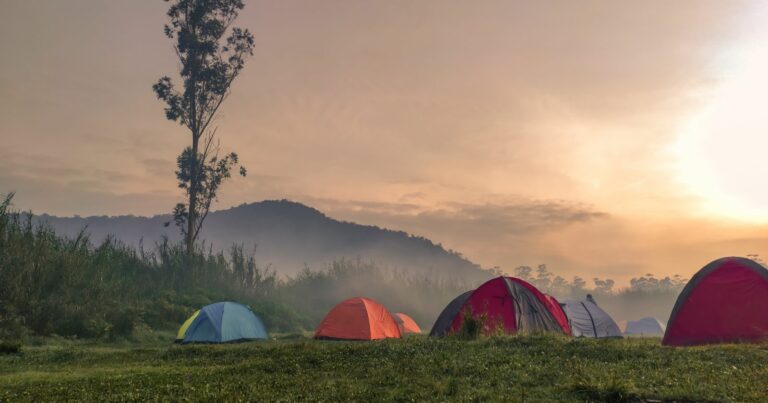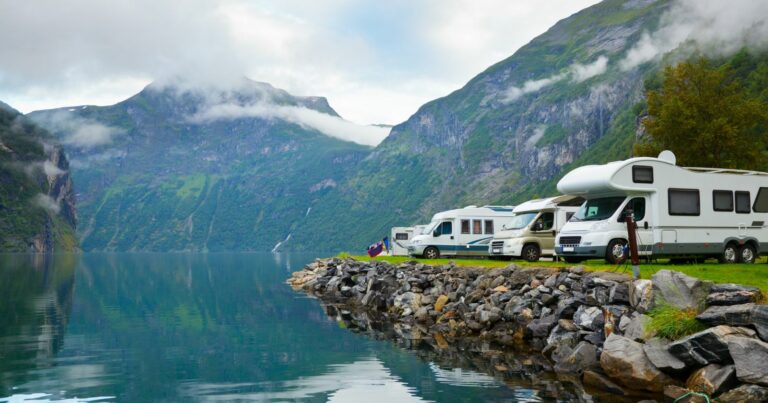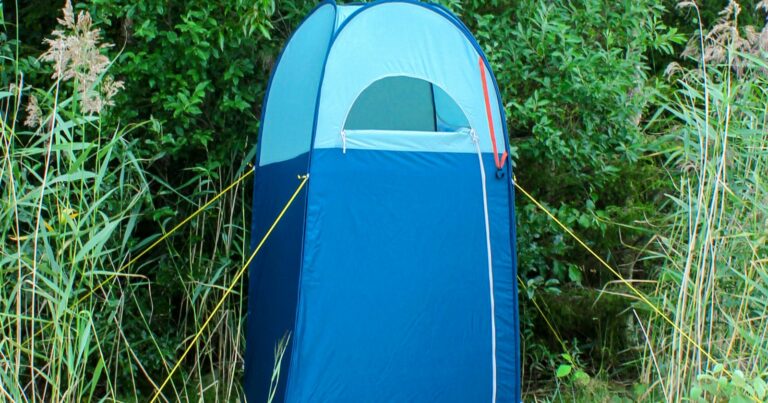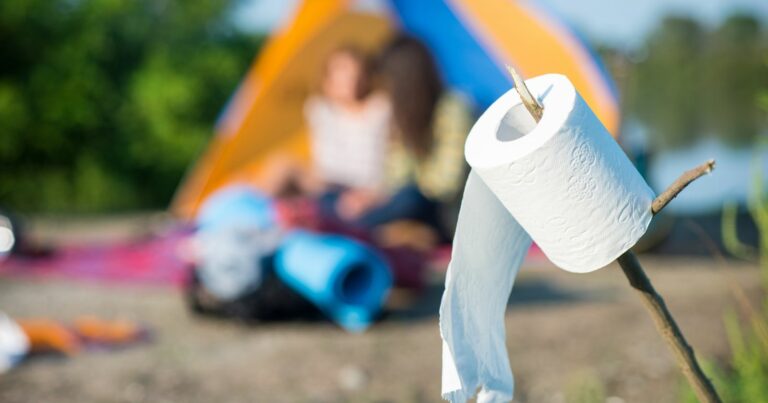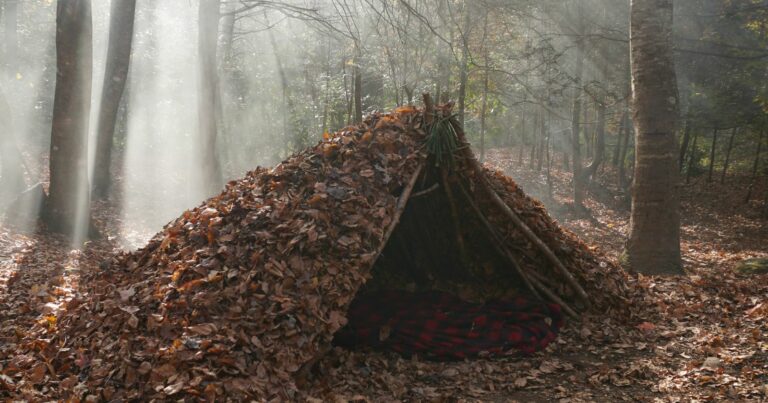How Often Should You Shower When Camping? Finding the Right Balance
Roughing it in the great outdoors can be an amazing experience. But after a few days without modern amenities, you may start to feel a little grimy. Figuring out how often to shower while camping can be a tricky balancing act. You want to stay fresh and clean, but you also need to conserve water and avoid damaging delicate ecosystems.
The good news is, you don’t need to shower every day while camping. In fact, daily showers are not typical or even necessary. Showering just enough to remove excess dirt and oil is usually sufficient. According to research, showering every few days is enough to maintain proper hygiene. A quick rinse in fresh water can get rid of unhealthy bacteria, prevent acne, eliminate odors, and help you feel refreshed.
Of course, how often you shower comes down to personal preference and what facilities are available. Some hardy campers are fine going a few days between showers. Others may feel compelled to wash daily. The key is finding a comfortable balance for you while also adhering to Leave No Trace principles.
Proper hygiene is crucial for health and comfort while camping. But it’s just as vital that we respect the environment. With some thoughtful planning, we can meet our cleaning needs while minimizing our impact on nature. The next time you head out to the wilderness, consider how often showering is really necessary. You may find that barebones bathing keeps you feeling fresh while letting you fully embrace the natural experience.
Daily Showers Aren’t Necessary for Campers
When embarking on a camping trip, it’s important to ditch expectations of daily showering. Showering every single day is uncommon for most campers.
Why You Don’t Need a Daily Shower
- Water conservation – Showering uses significant water, a precious resource in nature.
- Limited facilities – Most campsites don’t have shower stations readily available.
- You don’t get that dirty – Outdoors, you won’t get as grimy as you would in the city.
Showering less frequently helps preserve the integrity of the environment. As long as you take occasional rinse-offs, you can stay fresh and minimize impact.
Balance Hygiene and Conservation With Strategic Cleaning
Though daily showers aren’t necessary for campers, you do need occasional washing for hygiene. Finding the right frequency comes down to balancing health and conservation.
Wash Off Dirt and Bacteria
A quick rinse every few days can wash away sweat, dirt, and bacteria. This helps:
- Remove unhealthy germs from skin
- Prevent body odor
- Avoid acne breakouts
- Feel refreshed and rejuvenated
Conserve Water
While periodic washing is healthy, limit showers to conserve water. Some strategies:
- Take Navy showers – Wet skin, turn off water to lather, then briefly rinse off.
- Share showers – Shower with a friend and cut water use in half.
- Use biodegradable soap – Minimize impact on the environment.
- Wash in lakes or streams – Use natural water sources without taxing plumbing.
How Often You Should Shower Depends on You and Your Campsite
There is no universal rule for how frequently to shower while camping. Ideal frequency depends on your personal comfort level and the amenities available at your campsite.
Personal Preference
Tolerance for grime varies by person. Consider:
- Level of dirtiness – How messy are the activities you’re doing at camp?
- Desire for hygiene – How important is washing off sweat or dirt to you?
- Weather conditions – Hot, humid weather may necessitate more frequent rinse-offs.
Decide your own minimum cleaning threshold based on these factors.
Campsite Facilities
Shower availability at campsites runs the gamut:
- Primitive sites – No showers available. You’ll need to bathe in lakes or streams.
- Standard sites – Shared shower houses offer occasional access.
- Luxury sites – Individual showers give you unlimited hot water.
Assess what’s offered at your camp location to shape expectations.
Alternative Washing Methods for Campers Without Showers
What if your campsite doesn’t have shower facilities? You’ll need an alternative way to wash up.
1. Take a Dip in a Lake or Stream
Many campgrounds are located near natural freshwater sources. Rinsing off in a lake or stream allows you to wash away dirt without using plumbing resources.
Be sure to use biodegradable, environment-safe soaps that won’t contaminate the waters. And never bathe directly in streams — always do so at least 200 feet from the water source.
2. Use Wet Wipes, Rinseless Shampoo, and Other Essentials
With the right supplies, you can improvise a wilderness wash-up:
- Wet wipes – Use unscented options to clean skin and prevent odors.
- Dry shampoo – Absorb oil and freshen hair between real washings.
- Rinseless soap – Lather up without water using special camp soaps.
- Deodorant – Block odors, even if you can’t fully shower or laundered clothes.
- Baby wipes – Gently cleanse skin when showering isn’t possible.
Load up on these items so you can stay clean(ish) even without shower access.
3. Heat Up Water
For a DIY wilderness shower, heat water over a fire or camp stove. Use a solar shower bag to hold the water and enjoy a heated outdoor rinse.
4. Time It With Day Activities
Schedule washing for when you’ll be in or around water anyway. Swim in a lake, then use biodegradable soap to wash up right afterward. Plan beach days for when you’re feeling grimiest.
General Guidelines for Camp Shower Frequency
As a general guide, most campers tend to shower:
- Every 2-3 days – Quick rinse-offs every few days are enough for most campers. This removes dirt and sweat without excessive water use.
- 1-2 times a week – Showering a couple times a week is common for low-activity camping with no swimming.
- Daily – Frequent showers are less likely, unless full facilities are available. Some may choose to shower daily, but it’s not the norm.
Make adjustments based on activity level, facilities, personal preference, and weather. Prioritize conservation while meeting your hygiene needs.
Maintain Leave No Trace Principles
No matter your showering frequency, it’s vital to camp with Leave No Trace ethics in mind. Follow these tips:
Respect facilities: Avoid clogging sinks with hair and food waste. Don’t use excessive soap or shampoo that leaves residue behind. Keep communal showers tidy.
Conserve water: Limit shower length to conserve every possible drop.
Use biodegradable products: Soap, shampoo, sunscreen, toothpaste, and detergent should all be environmentally friendly.
Properly dispose of waste: Cart dirty bath and wash water at least 200 feet from water sources. Don’t pollute lakes or streams.
Let the wilderness stay wild: Avoid bathing directly in lakes or rivers. Rinse off with small amounts of water carried in.
Leave No Trace behind when bathing outdoors. Prioritize conservation and stewardship over comfort and convenience.
FAQs About Showering While Camping
How can I shower while camping if there are no facilities?
If your campsite doesn’t have showers, you have a few options to bathe:
- Rinse off in a nearby lake, river, or stream using biodegradable soap
- Use cleansing wipes or rinseless soap and shampoo to clean your body
- Heat up water and use a solar shower or makeshift setup to bathe
- Time your washing with swimming activities
What are some showering tips to conserve water?
- Take short “Navy” showers wetting and rinsing quickly
- Share showers with a friend or partner to cut water use in half
- Use washcloths to lather up rather than standing under running water
- Look for shower heads or faucet attachments that reduce water flow
How can I shower safely in a lake or stream?
- Never bathe directly in moving water – find a pool or eddy area instead
- Wash at least 200 feet from any water source to avoid contamination
- Use minimal biodegradable soap that won’t affect plants and animals
- Rinse thoroughly so no soap residue is left behind
- Avoid getting shampoo and soaps in your eyes, ears, nose or mouth
Can I go swimming instead of showering?
Swimming is a great way to wash off sweat and dirt, though not a full substitute for bathing with soap. Make sure to rinse with soap after swimming to actually cleanse your body rather than just rinsing away dirt.
What supplies can help me shower while camping?
Helpful items to shower or wash up while camping include:
- Solar shower or camp shower bag
- Wet wipes, biodegradable soap, dry shampoo
- A hose or portable shower head
- Water carrier or buckets
- Washcloths or luffas
- Quick-dry towel
Stay Fresh While Camping in Nature
Camping in the great outdoors can be rejuvenating for body and soul. But going days without a shower can make you feel grimy.
Finding the right balance means showering enough for hygiene, while conserving water and respecting the environment.
Assess your personal tolerance, campsite facilities, and activity levels to decide what works for you. Employ smart strategies like Navy showers, wet wipes, and biodegradable toiletries.
With some thoughtful planning, you can stay fresh and minimize your impact. Here’s to keeping clean and green on your next nature adventure!


